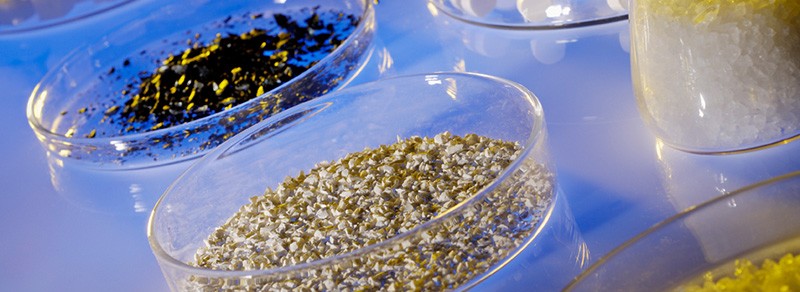Chemical Analysis
At Testbourne Ltd, chemical quality assurance is a core part of our materials offering. Every order is supplied with a Certificate of Analysis (CoA) as standard, covering essential compositional data.
To support critical thin film applications, we perform X-ray diffraction and spectrographic analysis for each element or compound. For non-metallic impurities, such as oxygen, data is available upon request.
Advanced Analytical Techniques
In addition to our standard testing, we offer advanced chemical analysis methods as a value-added service for customers purchasing high-purity materials, sputtering targets, or thin film deposition products.
Inductively Coupled Plasma Spectroscopy (ICP)
ICP is a highly accurate bulk quantitative technique used to determine the composition of major and trace elements within a sample. It is particularly useful for analysing metal alloys and high-purity materials.
ICP is ideal for:
- Sputtering targets
- High-purity metals and alloys
- Complex material blends
Advantages
- Simultaneous detection of up to 70 elements
- High sensitivity and precision for a wide range of metals
Limitations
- Requires the sample to be dissolved in acid, making it unsuitable for solid-state-only testing
- Matrix effects from common elements may affect trace-level detection in some samples
Glow Discharge Mass Spectrometry (GDMS)
GDMS is used for the ultra-sensitive detection of metallic impurities and depth profiling. It is well-suited to applications where contamination control is critical, such as in semiconductor-grade or research-grade materials.
Common uses for GDMS include:
- Refractory metals and alloys
- Rare earth metals and oxides
- Precious metals
- High-purity sputtering targets
Advantages
- Full periodic table coverage (excluding Hydrogen)
- Sub-parts-per-billion (ppb) detection sensitivity
- Excellent for depth profiling coatings and oxide layers
Limitations
- Cannot detect Hydrogen (H), Carbon (C), Nitrogen (N), or Oxygen (O₂)
- The sample is consumed during analysis, making it a destructive test
Can I request a specific type of analysis for my material?
Yes, you can specify ICP or GDMS depending on your material type and what you're looking to measure. Our technical team can help you select the most appropriate method based on your application.
What’s the typical turnaround time for advanced analysis like GDMS?
Turnaround times vary depending on the material and the testing queue but typically range from 1–2 weeks for advanced testing. We’ll provide an estimate once we review your requirements.
Will I receive raw data or just a summary in the Certificate of Analysis?
Our standard CoA includes summarised results, but full raw data sets can be provided upon request, especially for ICP and GDMS testing.
